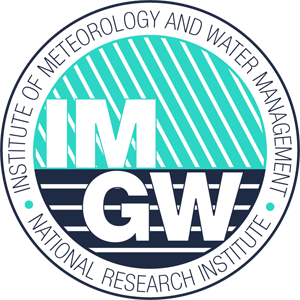ORIGINAL PAPER
The concept of a methodology for assessment of programmes of measures in implementation of the Water Framework Directive 2000/60/EC
1
Division of Water Management, Institute of Meteorology and Water Management - National Research Institute, Branch in Cracow
2
Division of Water Management, Institute of Meteorology and Water Management - National Research Institute, Branch in Cracow, Borowego 14 Street PL-30-215 Cracow, Poland
Publication date: 2015-02-17
Corresponding author
Tomasz Walczykiewicz
Division of Water Management, Institute of Meteorology and Water Management - National Research Institute, Branch in Cracow, Borowego 14 Street, PL-30-215 Cracow, Poland
Division of Water Management, Institute of Meteorology and Water Management - National Research Institute, Branch in Cracow, Borowego 14 Street, PL-30-215 Cracow, Poland
Meteorology Hydrology and Water Management, 2(2),15-22
KEYWORDS
programmes of measuresWater Framework Directive 2000/60/ECthe State Water and Environment Programme (SWEP)
TOPICS
ABSTRACT
This article presents the concept of the methodology for assessing the implementation of programmes of
measures adopted in the State Water and Environmental Programme, and, in consequence, in the framework of the first water management plans for river basin districts in Poland, as approved by the Council of Ministers on 22nd February, 2011, and published in the official journals. The scope of work in the methodology concept primarily concerns two basic analyses: assessment of the accomplishment of programmes of measures with regard to the degree of their accomplishment, and assessment of the effectiveness of scheduled programmes of measures. The level of accomplishment should be understood as the quantitative status of progress of particular measures, whereas effectiveness means their direct or indirect impact on the achievement of environmental goals of the Water Framework Directive. For this purpose, for some of the measures databases and reports existing in institutions responsible for the performance of measures indicated in the SWEP were used. For the rest of the measures, the survey method was used. For the purpose of the surveying process, the preparation of appropriate matrixes with measures marked for institutions, and also of email address databases, were proposed. Also, identifiers serving to link answers with specific areas on maps that trace measures were proposed.
The present and forecast situation concerning reporting in the scope of the WFD and other tasks connected with it in the field of environmental protection leads to the conclusion that the coordination of reporting at the state level and the improvement of the flow of information between interested institutions is necessary.
We process personal data collected when visiting the website. The function of obtaining information about users and their behavior is carried out by voluntarily entered information in forms and saving cookies in end devices. Data, including cookies, are used to provide services, improve the user experience and to analyze the traffic in accordance with the Privacy policy. Data are also collected and processed by Google Analytics tool (more).
You can change cookies settings in your browser. Restricted use of cookies in the browser configuration may affect some functionalities of the website.
You can change cookies settings in your browser. Restricted use of cookies in the browser configuration may affect some functionalities of the website.


